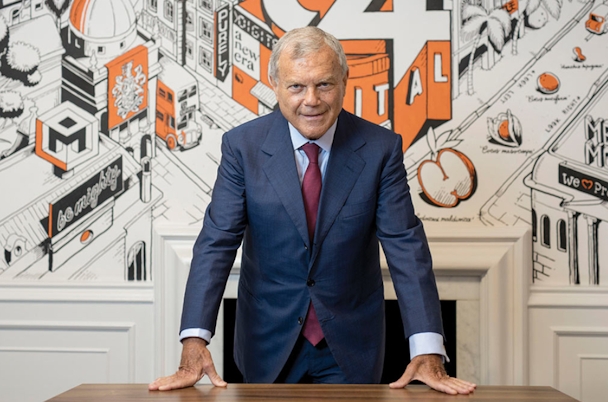Masterstroke or massive mistake? Sorrell on rationale behind Omnicom takeover of IPG
As the industry digests news that Omnicom is acquiring Interpublic to form the planet’s biggest ad group, S4 Capital boss Sir Martin Sorrell tells The Drum the deal is either a masterstroke – or a big mistake.

Sir Martin Sorrell of S4 Capital
While the corporate optimism surrounding the megadeal between Omnicom and Interpublic has been palpable today, Sir Martin Sorrell, founder of S4 Capital and former WPP chief executive, is never one to mince words. Sorrell’s assessment of the merger begins with a critical look at IPG’s motivations.
“This is clearly a defensive move, driven by the pressures IPG has faced in recent years,” Sorrell says. “They’ve suffered significant account losses from major clients like Microsoft, Coca-Cola, Pfizer, and General Motors. These are not just losses in revenue but also in strategic standing. The merger gives them a lifeline and a chance to reposition themselves in the market, but it comes at the cost of their independence, which is a steep price to pay.”
Sorrell goes on, “Omnicom’s stock is at an all-time high and they can consolidate and leverage media brands and healthcare. This move will cause a huge disruption to both businesses.
“As for the other groups, not surprisingly, Publicis will be annoyed, losing the crown before they won it (Snoop Dogg paid for nothing?!) WPP falls further behind along with Dentsu and Havas. Basically, IPG was in deep trouble and Omnicom (John Wren the wily old fox) saw an opportunity. I predict that integration issues will be huge – 150,000+ people, almost as many as Google, with a $2 Trillion market cap.”
Sorrell also notes that the merger underscores the intense competitive pressures facing traditional holding companies: “Clients are relentlessly driving down fees,” he says. “Add to that the broader industry challenges around digital transformation and media fragmentation, and it’s clear that IPG needed to make a bold move to stay relevant.”
Want to go deeper? Ask The Drum
Scale alone not the answer?
While Omnicom has touted the advantages of scale and integration, Sorrell questions whether size still equates to competitive advantage in today’s market. “Scale is not the golden ticket it once was,” he says. “The real battleground now lies in agility, innovation, and the ability to harness data effectively. The days when simply being the biggest player guaranteed success are long gone. Smaller, more disruptive players like S4 Capital are much better positioned to adapt to the fast-changing demands of clients.”
That said, Sorrell acknowledged the strategic benefits of the merger for Omnicom. “The US market remains a critical driver for the global economy. By increasing its footprint in the US, Omnicom gains a significant edge. It’s a market where growth is still robust, and having a stronger presence there makes a lot of sense strategically.”
Advertisement
Integration challenges loom large
One of the most significant hurdles for Omnicom and IPG will be integrating their vast operations, which span multiple disciplines, agency types, brands and geographies. Sorrell highlights this risks in stark terms: “Bringing together two organizations of this size is a massive task. It’s not just about aligning systems and processes – it’s about merging cultures and ensuring that people feel secure in their roles. Cultural clashes, overlapping capabilities, and operational complexities could all become serious issues if not managed carefully.”
The S4 executive chairman also points to the potential for internal unrest. “When mergers happen at this scale, employees naturally start questioning their futures,” he added. “Keeping morale high and retaining top talent will be critical for the success of this integration. If they lose key players, the whole effort could unravel.”
As with any industry shake-up, the Omnicom/IPG merger opens doors for competitors. Sorrell sees opportunities for both smaller agencies and the other major holding groups. “Disruption creates opportunity,” he said. “Clients will inevitably reassess their options, especially if they feel uncertain about the stability or focus of the new combined entity. This is a prime moment for Publicis, WPP, and independents to position themselves as stable alternatives.”
He also speculated about potential divestitures. “It wouldn’t surprise me if Omnicom offloads some agency brands to streamline operations,” Sorrell adds. “This could create openings for other players to acquire valuable assets or talent that might otherwise have been inaccessible.”
The merger, according to Sorrell, is emblematic of broader industry trends. “Consolidation has been a recurring theme in marketing and advertising for years now,” he explains. “Clients are demanding simpler, more integrated solutions, and holding companies are responding by bulking up. But while consolidation can address some challenges, it’s not a cure-all. The real challenge is remaining agile and innovative in the face of relentless digital disruption.”
Sorrell also notes the dominance of tech platforms in the advertising space. “Google, Facebook, Amazon, these companies capture the lion’s share of ad spend,” he said. “Traditional holding companies need to reinvent themselves to compete effectively. Just getting bigger won’t be enough to take on the platforms.”
Advertisement
Taking a gamble
For Omnicom chief executive John Wren, this deal represents a defining moment. Sorrell offers an interesting perspective on the position Wren finds himself in: “Wren is taking a significant gamble here. At this stage in his career, he’s likely looking to cement his legacy, but the stakes couldn’t be higher. If the integration goes smoothly and the synergies materialize, he will be celebrated as a visionary. But if things go wrong, if the expected savings don’t happen or clients become unsettled, the fallout could be severe for both Omnicom and its shareholders.”
Sorrell’s final thoughts were both cautionary and forward-looking: “This merger is undeniably bold, but bold moves come with inherent risks. The next two years will be critical in determining whether this is a strategic masterstroke or an expensive miscalculation. Either way, it’s a stark reminder that the marketing industry is in constant flux, and even the biggest players are not immune to the forces of change.”
As the dust settles (for today, at least) on this deal, all eyes will be on Omnicom and IPG to see whether their union delivers on its promise or becomes a cautionary tale for the industry. Meanwhile, Sorrell will continue to challenge the status quo, ensuring that the debate over the future of marketing remains as colorful as the industry itself.
